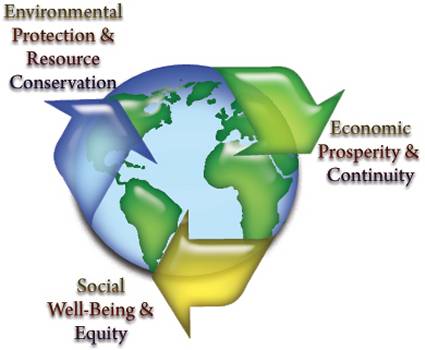 |
|
StefanL, 24.08.09, 16:22
In part one of this series we have identified opportunity as the first base on the grounds of which organizations and their members act against ethic standards (i.e. commonly agreed norms of action). We have not determined yet if they do this knowingly or talked too much about what the corresponding thoughts and ethical rules or justifying morales are.
A second fundamental on which individual employees and members commit unethical actions is the fact that many organizations regularly reward behaviors that violate ethical standards.
Consider, for example, how many business executives are expected to be able to handle bribery and payola. Then, to fulfill the corresponding implicit expectation of share- and stakeholders they take the risk and perform these actions in spite of the danger of negative publicity for the company or club as well as themselves and the threat of legal action against them.
On the other hand everybody who has been working for longer than a year starts to perceive how corporate citizens who blow the whistle on organizational wrongdoing are being scolded and punished for their actions, punishment meaning mostly having their careers blocked.
Business sociology has long explained how organizations have to and tend to develop so called counternorms, tacitly accepted organizational practices that are contrary to prevailing outside ethical and legal standards.
Example values: transparency and honesty
On the common idealistic public ground, being open and honest is widely accepted as a prevailing ethical norm. Indeed, legal and governmental regulations requiring full disclosure and freedom of information reinforce society's values toward openness and honesty.
Within business companies and political organizations however it is often considered not only acceptable, but desirable, to be quite secretive and deceitful. The practice of willingly hiding relevant information, can rightfully classified to be widespread if not pretty common.
In this field, public and private morale have drifted apart in the last 200 years. Whereas it was common in monarchies to have a "Privy Council" or "Geheimer Rat" at the top of the political pyramid, bourgeois democracy idealized public negotiation of all topics, save warfare maybe.
To the chagrin of many radical 19th century democrats the monarchical principle and ruleset was kept for business governance and the management of warfare. Only over time and with diversification of ownership in publicly listed corporations transparency and honesty rules have made some leeway into business legislation but still have rather little effect in the management of states' or corporations' armed forces.
On the other hand keeping these seemingly tried and tested practices of monarchical governance in these two important fields of societal activity have caused many relapses into the old ways of control through single command which at best seeks the advice of a secretive group called a privy council in olden times, a polit bureau in some countries and a think tank here in the west.
In mediterranean western European countries the president is still expected to show some visible machiavellism and a large amount of open and hidden foxy and deceitful trickiness by the majority of the population. In the more reformed countries north of the Alps politicians with too sharp a profile of that sort can get far, but rarely to the top anymore.
French presidents Mitterand, Chirac and Sarkozy, Italian presidents of ministers' council Andreotti, Craxi and Berlusconi as well as Spanish presidents of government Gonzalés, Aznar and Zapatero all illustrate the fact very well.
Willy Brandt, Helmut Kohl, Angela Merkel, Margret Thatcher, Anthony Blair, Olof Palme and Jean-Claude Juncker, to name just a few, on the other had a more complex task to build an efficient mixed image of morality and smartness.
Austria, as one of the countries standing between the mediterranian catholic and the northern reformed traditions sways this way and that. While fox Kreisky mixed his image well, eminent political talents like Mr. Haider and Mr. Androsch did not care to hide the trickster scheme well enough and never got to the top spot, while Mr. Schüssel successfully hid it and made it to chancellor of the federation. Only later did he have lapses before mics and cams that brought his trickster side to the fore.
Bottom line mentality

The name for this kind of above morale slyness used most often by english writing analysts and media is bottom line mentality.
This line of thinking supports material success as the lonely top value to be considered. It presents itself as pragmatic, smart and caring a lot for one's family and also for oneself, which in turn is presented as a necessary prerequisite for the former.
It promotes short-term solutions that are sound. These solutions are presented and expected to lead to immediate success, financially, materially or politically, but despite the fact that the same solutions may cause some short term and many mid- and long term problems for others within the concerned group or the organizational structure as a whole.
This line of thinking also promotes a pretty unrealistic belief that everything boils down to a material game and its outcome, the bottom line. As such, rules of morality are to be considered as helping a bit sometimes, but more often as mere obstacles, impediments along the way to said immediate material success for leaders and their closer group of associates.
In the upper tier of organizational pyramids bottom-line mentality, often expressed in phrases like "when it comes to the bottom-line" or "what counts at the end of the day", is quite evident.
Money, the preeminent form of material success

When it comes to investing money into producing black figure bottom lines, the Congress of the United States of America has no equal. Although much of its expenditure is for purposes of national concern, a sizable portion is devoted to pork-barreling.
Pork-barreling is an American expression referring to the practice whereby a senator or representative gets Congress to allocate money to special projects that take place in his or her home district. In many cases, the projects have little value and constitute a drain on the majority of taxpayers. They do, however, create quite nice jobs and political support in the affected districts.
Some of these investments are designed to reward large-scale campaign contributors in the home district. Now we could give some examples from the reconstruction of post Bush war II Iraq and be quite shure of the consent of all well meaning Europeans. To avoid these all to easy prejudices let us give different examples.
The first one is the Maxi Cube cargo handling system. Funds for testing the Maxi Cube cargo handling system were written into the 1989 US defense budget during the final Senate-House Appropriations conference at the request of Pennsylvanian Representative Mr. John Murtha. The $10 million item was specifically targeted for a Philadelphia businessman and contributor to Murtha's campaign who's company and employees were to manufacture the truck in Murtha's home district. The only problem was that the U.S. Army had clearly said that it had "no known requirement". In response, Murtha was reported to be "mad as hell" at the "nitpicking" by the army. He pushed ahead anyway and used his position on the Appropriations committee to freeze a series of military budgeting requests until he got his pet project approved.
The second one is the case of a large contract for road building and reconstruction the Polish government had concluded with the Saddam Hussein administration. When the US government was seeking European support for Bush War II and the danger of losing the contract and all its benefits through a violent change of the administration of its partner country became evident, Polish president Aleksander Kwaśniewski and prime minister Leszek Miller were confronted with a dilemma.
Unemployment being at the time the largest political problem of Poland and access to the European Union still a year or so away they felt forced to protect the interests and jobs of its many citizens in the road building business and allocated a large monetary, human and political capital to the purpose. Both of them, despite the fact that they were ex-communists, social democrats and probably knew that their party and at least one of them would have to pay heavily later on in Polish and European politics, publicly joined the so called coalition of the willing in the most voluntary and crazy war that the most reactionary administration of the United States had started for no reasons at all and on the grounds of completely fictional facts.
The differences between these practices in the United States and Europe and the difference between state mediation in the interior or in foreign countries are in color, size and minor paragraphs. Still, the underlying pattern stays the same.
And while opportunity is mostly a bottom up phenomenon and works strongest in the lower tiers, bottom line reasoning works predominately top down and works the stronger the higher you look.
Inside Out and Outside In
For the purpose of this analysis and remedy research here we will have to keep bottom line practice within and without the organization apart and contemplate them separately.
It makes a difference if the material success of the organization is traded off against an unethical advantage for an outside partner as is the case with bribery in foreign countries for example or if material benefits for individual employees or members of the organization are achieved through general or particular bottom line ethics. We will talk more about these differences in a later installment.
In the meantime please keep in mind that bottom line theory and practice often mingle intentions, purposes, ideology and action as well as the inside and the outside. The effects of this mingling may be subtle or crude. The moment you say or think something like "when it comes to the bottom-line" or "at the end of the day" please be aware that you are using a pattern of reasoning where one criterium, immediate success, will dominate all others. Outside action will inform inside practice which in turn will influence outside action, no matter which of these will first come to the viewers attention, whatever might be the hen or the egg.
Purpose does not justify or sanctify the means has been wrongly ascribed to Niccolo Macchiavelli by many. But not matter who really said or wrote it first, if you deny that negative assertion then your consideration of ethics will be very difficult from the beginning.
Democratic modernization:

In recent years a certain branch of academic researchers have ventured to keep the bottom line metaphor and balance it in a different way.
To dampen the effect of letting the single top value of material success unfold its benefits and damages this modern form of 3 legged stool theory tries to balance profit against committee defined ideology representing an imaginative people's interest and community elites' defined well-being of the "planet". The United Nations have already ratified one special application of this tripple bottom line scheme:
The triple bottom line (abbreviated as "TBL" or "3BL", and also known as "people, planet, profit") captures an expanded spectrum of values and criteria for measuring organizational (and societal) success: economic, ecological and social. With the ratification of the United Nations and ICLEI TBL standard for urban and community accounting in early 2007, this became the dominant approach to public sector full cost accounting.
We will nevertheless abstain from analysing and evaluting the 3BL strategy and ethics and stater only it would be to simple to create the impression that bottom line calculation is a mere bad thing.

Let us also state another word of caution. Our ideological idol Bento de Espinosa was well known for his opposition to of all kinds of teleological (goal-oriented) thinking and we follow him in this opposition. And 3BL is no less goal-oriented than 1BL. Setting goals for and measuring achievment of political or economical action is important but dangerous too.
|
|
 |
last updated: 28.06.25, 09:47
Youre not logged in ... Login
 ... antville home
Terms of Service
About us / Imprint
| Juli 2025 |
|---|
| So. | Mo. | Di. | Mi. | Do. | Fr. | Sa. |
|---|
| | 1 | 2 | 3 | 4 | 5 | | 6 | 7 | 8 | 9 | 10 | 11 | 12 | | 13 | 14 | 15 | 16 | 17 | 18 | 19 | | 20 | 21 | 22 | 23 | 24 | 25 | 26 | | 27 | 28 | 29 | 30 | 31 | | | | Juni | | |
    D'après ce que je vois
vous avez tout à fait raison, Mr. Tobi.
by MaryW (01.03.25, 08:34)
...
La crisi consiste appunto nel fatto che il vecchio muore e il nuovo non può nascere: in questo interregno si verificano i fenomeni morbosi piú....
by tobi (28.02.25, 16:22)
...
Haschimiten-Familie
Vater:Husain ibn 'AliEmir von Mekka von 1908 - 1916König des Hedschas von 1916 - 1924
Sohn Faisal:Verhandlungsführer der "Araber" in Paris König des Irak von 1921....
by StefanL (19.01.25, 06:26)
Ich habe eh
einen Esseh über den Kulturpessimismus, der ja grundlegend mehr reaktionär als konservativ ist, in Arbeit. Wird aber noch dauern.
by StefanL (10.01.25, 23:50)
Jaaa!
Ich geb ja gerne zu, dass der Neid aus mir spricht. ;-)
by StefanL (10.01.25, 23:46)
...
Aha soso ein Professor h.k. (honore kurza).
by tobi (10.01.25, 23:30)
I totally agree
mit der Meinung, dass das Hemisphärenmodell überholt ist.
Die mediale Lust am Untergang hat eine rational kalkulierendes Element auf der einen Seite und massenpsychologische Element, dass....
by StefanL (10.01.25, 20:15)
Woher kommt diese Lust am Untergang?
Friedrich Sieburg kommentierte »die Tendenz der Medien, unentwegt den Weltuntergang durch einen Atomkrieg vorauszusagen als weinerliche, kaum zu ertragende Geschwätzigkeit. Sie sei auch deswegen absurd,....
by tobi (10.01.25, 19:18)
Read the books,
watched the series for a while. Got distracted then. Did NOT buy the T-Shirt. Interesting problem. Thanks!
Slice, slice, very slice. Thank you for not killing....
by StefanL (06.01.25, 11:39)
...
Slice, slice, very nice.
by tobi (05.01.25, 23:31)
...
😻
by tobi (18.12.24, 12:27)
We could just barely
keep the censor's office and the press team of the president-elect from intervention but here are our apologies and our thanks for these valuable hints....
by MaryW (17.12.24, 23:37)
...
The (correct) first name of Mr. Zelenskyj is the Ukrainian Володи́мир, not (of all things) the Russian Влади́мир 😿
Second name is Oleksandrovych.
Ложка дьогтю у бочці....
by tobi (16.12.24, 19:15)
Du hast recht,
Universal-Genies brauchen wir echt keine mehr. Ich wollte eh nur sagen:
Things are going to slide, slide in all directions.
Won't be nothing, won't be nothing you....
by MaryW (31.10.24, 23:13)
...
Hm. Ich glaub, da gibt es schon noch einige Kandidat*innen. Mir fällt spontan Lisz Hirn ein. Ich fürchte nur, die schaffen es nicht mehr, so....
by tobi (03.10.24, 19:21)
Das sind
wirklich die allerletzten, diese Streberschweine. Aber sonst auch.
by StefanL (18.09.24, 08:42)
Es gibt sogar
Verbrecher, die das ganze WE zusätzlich durcharbeiten, um Pegelkarten zu bauen. Das sind dann die allerletzten.
by gHack (17.09.24, 18:56)
Geändert
Inzwischen hat Herr Fidler den Fehler erkannt und korrigiert sowie sich inzwischen bei den LeserInnen entschuldigt.
Nur damit das nicht untergeht. Wir haben hier in der....
by StefanL (21.02.22, 09:17)
There has been evidence
that the important and successful ideas in MSFT - like licensing the Unix source code in the 70ies and learning from it and licensing QDOS....
by StefanL (02.01.22, 11:18)
Now
I think I maybe know what you meant. It is the present we know best and the future we invent. And history is mostly used....
by StefanL (02.01.22, 09:51)
???
Hey, it's just a phrase wishing to convey that you're always smarter after the event than before it.
by StefanL (28.12.21, 07:35)
Addendum
Oracle is now mentioned in the English Wikipedia article on teletext and even has its own article here. Electra has one too.
by MaryW (22.12.21, 07:11)
We have grossly erred
At least in point 5. We thought, people would have come to the conclusion that permanently listening to directive voices as an adult is so....
by MaryW (21.12.21, 07:42)
Did not want to spell the names out
Ingrid Thurnher should have been easy, as she is pictured in the article. Harald F. is an insider joke, the only media journalist in Austria,....
by StefanL (19.12.21, 08:45)
...
with four letters it becomes easier though i am not sure with hafi… anyhoo, inms guessing acronyms or whatever this is.
*it’s not my steckenpferd
by tobi (24.11.21, 20:49)
  |









